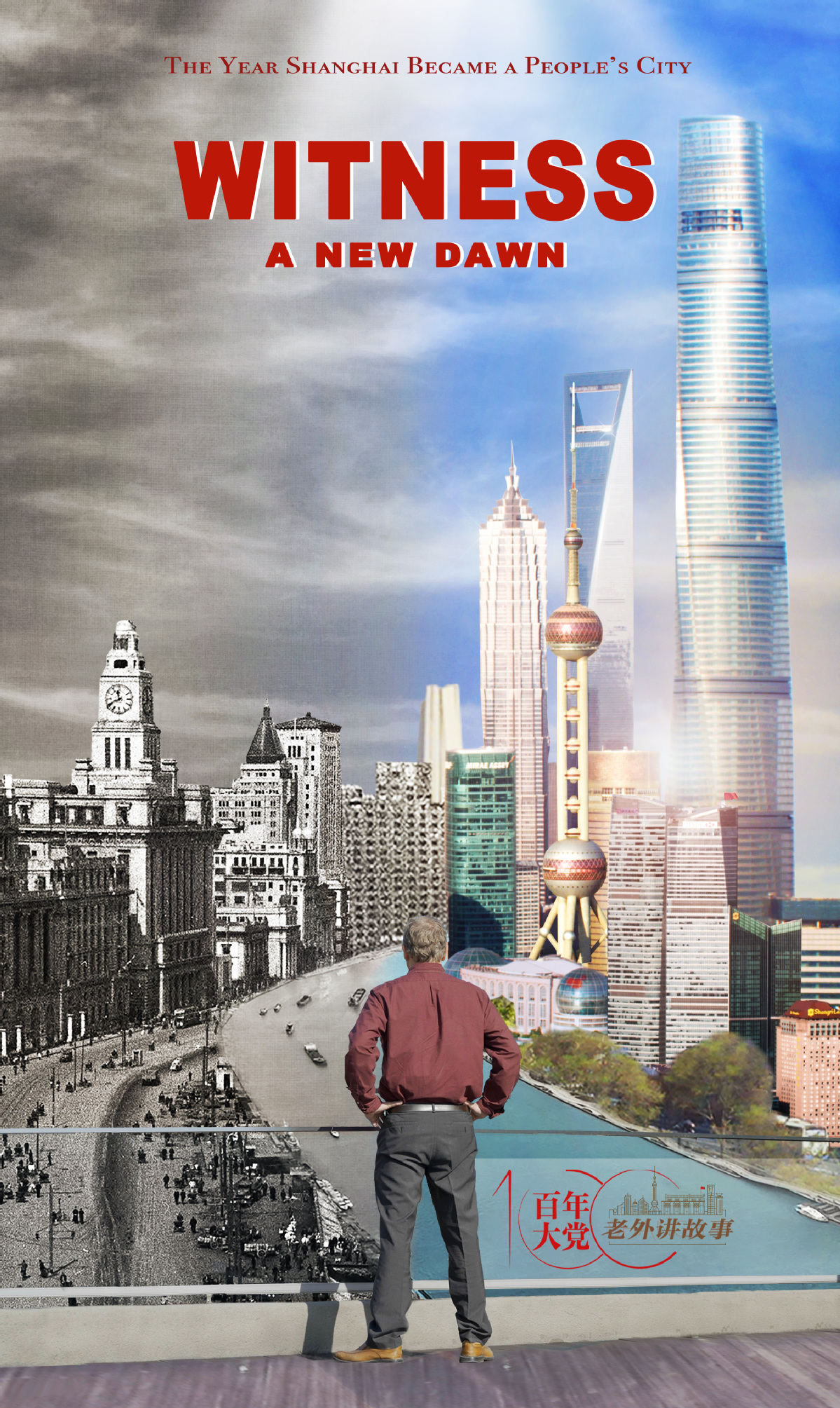Shanghai's new dawn placed in sharp focus


Documentary series tells story of city's liberation in 1949
Just before People's Liberation Army troops battled forces of the Nationalists, or Kuomintang, for control of Shanghai 72 years ago, Bill Powell, editor of the English-language magazine China Weekly Review, wrote an editorial.
Part of it read, "We welcome the change that has come about and hope that the arrival of the People's Liberation Army will mark the beginning of a new era-an era in which the people of China can now begin to enjoy the benefits of good government."
Days later, Shanghai was liberated on May 27, 1949, when the Communists won the battle and took control of the city from the Kuomintang forces. Shanghai became the largest Communist-run city in the world at the time and made international headlines.
Wang Xiangtao, who filmed the documentary series Witness a New Dawn, which looks back at that period from the perspectives of foreign journalists and Western residents, said, "This important part of Shanghai's history was recorded by many foreign journalists who were still working and living in the city."
When Shanghai was forced to open to major foreign powers as a trading port after the Opium Wars in the mid-19th century-becoming a semi-feudal and semi-colonial city for about 100 years-thousands of foreigners were attracted to the metropolis. Major news agencies also sent journalists to work in the city.
Wang said: "All the material I used for the project came from Westerners writing in English. I hoped to present the story of Shanghai's liberation from their perspective and to let more people know about this chapter of history."
The documentary features the stories of expatriates in Shanghai, including diplomats, journalists, doctors and traders. They tell how the CPC won public support because of the discipline of the army, dedication to public welfare, and effective management, as the Kuomintang regime descended into chaos, plagued by corruption and inflation.
Wang, a filmmaker at the Shanghai Media Group's documentary center, spent several years browsing library records.
He also published a book last year titled Shanghai Liberated, compiling information collected from historical papers, personal accounts, correspondents and the memoirs of expatriates living in Shanghai.
Wang then set out to transform the information he had gathered into a motion picture. He visited United States academic Andrew Field, Adjunct Professor of Chinese history at Duke Kunshan University, who studied Asian history and was a "proud long-term resident of Shanghai for around 20 years".
With Wang directing and Field hosting the documentary, the duo filmed in many locations where significant events unfolded in 1949.
Field said: "At that time, foreign news agencies continued filing dispatches overseas and English-language newspapers continued to operate in the city. So, what did they have to say about the Communists? I thought it would be a very interesting story to tell, and it was.
"It is interesting to read those (positive) reports written 72 years ago, especially since the news media tends to focus on the bad. The new authorities secured a good world press, and by their actions surmounted any prejudice which might have formerly existed."
























